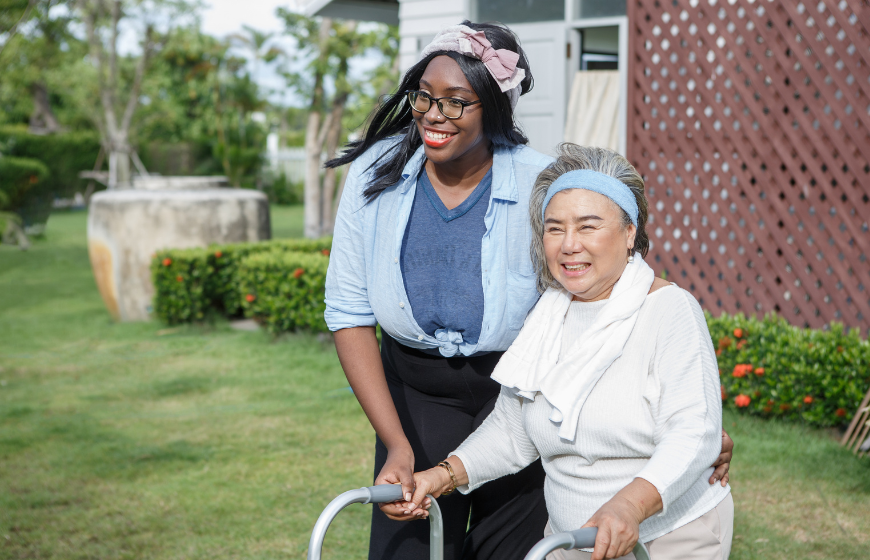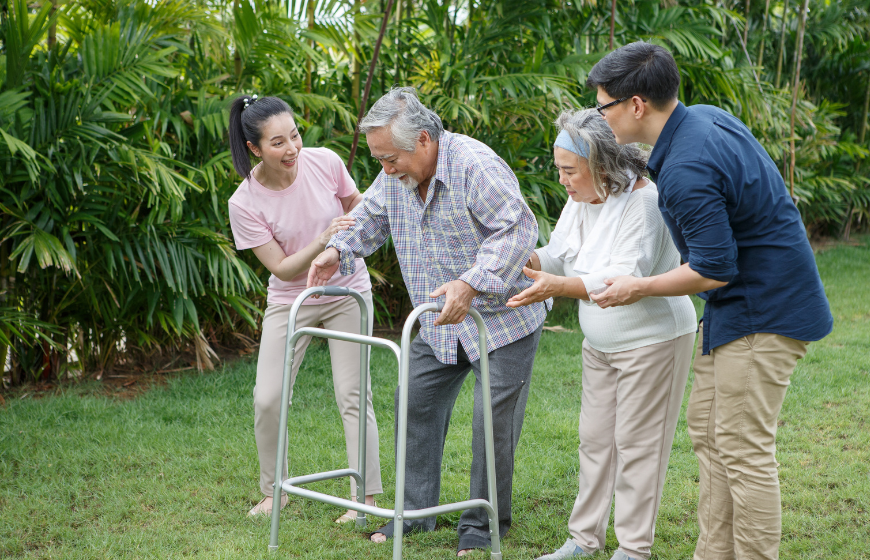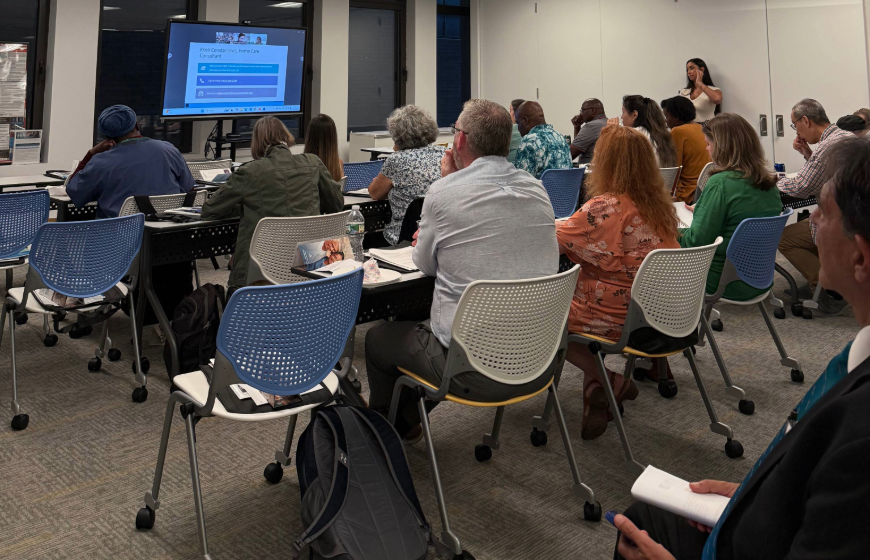As Independence Day approaches, you and your loved ones may reflect on what it truly means to be independent. For most of our lives, independence has meant doing things on our own. But as we grow older or experience changes in our health, that definition evolves.
The truth is that independence isn’t about doing everything alone. It’s about having the right support in place so you can live life on your own terms. Home care helps make that possible.
Let’s explore how home care supports independence physically, emotionally, and relationally, offering the foundation to live with dignity, purpose, and peace of mind.
A New Way Forward: Independence with Support
Home care can be the bridge between medical stability and personal autonomy. Compassionate, expert support can help you better manage a chronic illness or recover from a recent health event without relinquishing control over your life. Instead, it helps you gain the tools and trusted hands-on guidance to remain in command of your daily life.
This shift in mindset is often liberating. That goes for you as the one receiving care and for your loved ones who want the best for you. With the right approach, home care supports independence in ways that extend far beyond physical health.
Physical Independence: Empowering Wellbeing at Home
Chronic health challenges can make daily tasks feel more demanding, but they don’t have to take away your independence. In fact, with skilled in-home care, you can continue to manage conditions like heart disease, diabetes, or dementia while feeling comfortable and safe in your own home and with your own routine.
Here’s how home care supports physical independence:
- Thoughtful medication support to help avoid mix-ups and keep routines on track
- Hands-on help with walking and movement so you feel steady and secure
- Personal care that’s done with kindness, patience, and respect for your comfort
- Regular check-ins and close coordination with doctors to keep health needs from slipping through the cracks
This kind of tailored support allows you to continue living the life you’ve built.
Emotional Independence: Preserving Identity
There’s profound emotional value in staying at home. Home is where your memories live, where your routine brings comfort, and where your surroundings reflect who you are. Home care supports emotional independence by helping you remain connected to those feelings as your health goals and needs shift.
Support includes:
- Honoring daily rhythms, preferences, and traditions
- Encouraging meaningful routines, hobbies, and expressions of self
- Providing companionship without compromising independence or solitude
With the right care, home continues to feel like home and a place where you thrive.
Relational Independence: Thriving Together
Independence doesn’t mean being alone. In fact, when clinical and logistical needs are handled by professional caregivers, it creates more freedom for you to focus on what truly matters: relationships, passions, and purpose.
Home care supports relational independence by:
- Reducing caregiver burnout within families
- Preserving your role as a parent, friend, or partner, not just a patient
- Allowing you to participate in activities and time with loved ones without added stress
For your loved ones, home care provides peace of mind. They can rest knowing that a trusted professional is there to support you.
Real Independence is Rooted in Connection
This Independence Day, let’s redefine what it means to be independent:
- Not doing everything on your own, but instead having the right care
- Navigating a diagnosis or recovery time or simply seeking a more balanced way to age in the right place and at the right time
- Enjoying expert, compassionate assistance that adapts to your evolving needs and without compromising who you are
Home care supports independence by making sure you’re still the one in charge. Let’s connect to start your home care experience today.




